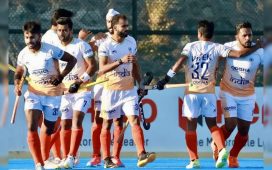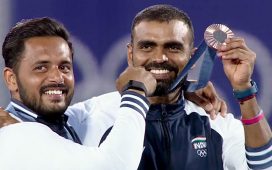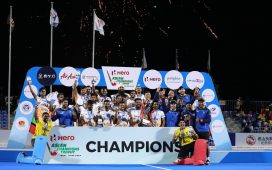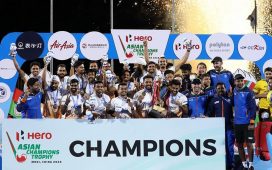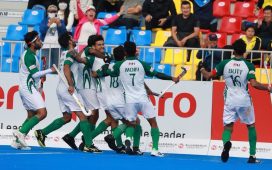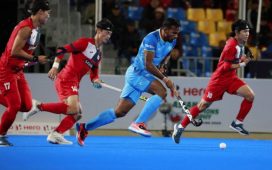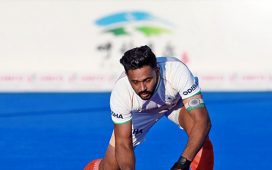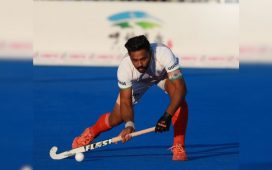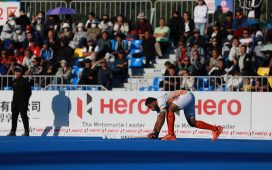For a team with a glorious past rivalled only by India, Pakistan hockey’s slide over the last two decades doesn’t seem to abate. The occasional flash of success and individual brilliance notwithstanding, Pakistan hockey’s struggles since it won the Asian Games gold in 2010 – its last major medal – have only worsened.
Factionalism, mismanagement and lack of funds have further pushed it down, the team languishing at 16th position at the moment, having hit an all-time low of 20th in the world two years ago. The ongoing Asian Champions Trophy is its first major tournament in a long time but it came with its own share of trouble that saw Roelant Oltmans refusing to travel for the competition and Tahir Zaman stepping in at the last minute.
The 55-year old, an FIH master coach with over 20 years of experience across the world, joined the team only on the eve of its first game in Hulunbuir and is aware of the long road ahead. “I am only trying to analyse and understand the players’ performance and trying to fix individual technical and tactical issues in a way they can feel confident and perform better. It is not easy to have any expectations when without any training sessions.
“The only advantage I have is knowing some of the players coached by me as juniors and interactions while they were playing in departments and leagues. But no one can do wonders in such a short time, the main process will start after this event,” Zaman said in an interaction with select media.
Lack of exposure
The previous outing for Pakistan was the Nations Cup in Poland – a qualifying event for the Pro League – where the team finished fourth behind New Zealand, France and South Africa and captain Ammad Butt, one of the few comparatively senior players, believes lack of experience was the biggest drawback for his side.
“Not just South Africa, ideally we should not have lost to New Zealand also in the semifinals. There were some issues in our performance in that tournament — some players were very new with no international exposure and we had not played a big international competition in a long time. It is not fair to suddenly take young kids to a big event and ask them to perform. We played well but the defence stumbled towards the end against SA and conceded goals. I believe we should have finished on the podium,” he told The Hindu.
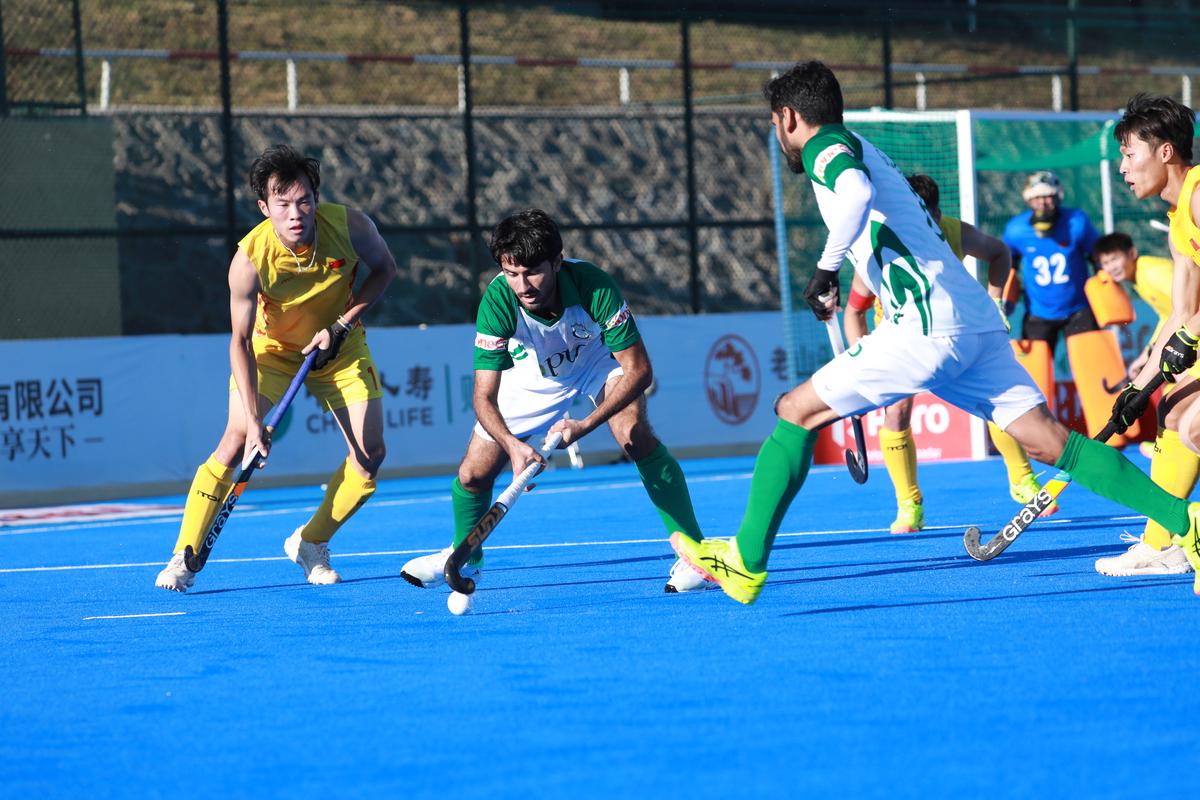
Oltmans was the Pakistan coach at that time, hired by the Pakistan Hockey Federation on an event-by-event basis due to financial constraints, not an ideal situation in any scenario. Add to the fact that the PHF itself has two factions, both claiming legitimacy and one recognised by the Pakistan government and the FIH each, and things don’t look great off the field.
“There are a lot of things to discuss with the PHF. It is a time-consuming process, I am sure we have enough talent to come back to world hockey but there are no shortcuts. It is not going to be easy without proper infrastructure, having a national level High Performance Centre or working on player welfare. Hopefully those things will happen soon,” Zaman said, adding that he had plans to revive Pakistan hockey but admitting it would be hard work.
“There are quite a few things we are addressing in the initial stages. We are working on upgrading our domestic hockey structure and standards and hopefully we will soon have a professional hockey league. Then, it is not possible to come back to high performance hockey without international experience.
“For that we have to allocate a budget which can allow us to travel abroad and play matches against top teams or top clubs. We will try to schedule our domestic calendar in such a way that our players are free to play in other leagues without it clashing with domestic events. We are also planning to restart the national junior championships and might start a national junior league if there is enough support from corporates. But all of this is in the pipeline.
“The PHF demolished the departmental system when it started the regional system of competition and selection and I don’t think it was a wise decision, we need to carry them both. Now they are trying to activate departmental hockey again. It is a long process, we have to make sure we are starting a sustainable process. I have the ideas and plans but only a continuity of this process will lead to success,” he laid out, explaining in detail the long haul ahead.
Butt agreed that, more than anything else, it was the system back home that needed fixing if Pakistan hockey wished to get back to the top tier in the world. Ironically, Pakistan players continue to be in demand, performing well in various European leagues, and Butt explained there was an easy reason. “System. When we play in clubs, the system is very different. In the national team we do not get that or facilities, which results in a decline in performance.
“The system is the biggest problem. Sadly, grass-roots hockey is all but finished in Pakistan at the moment and that’s where the revival needs to start so that new talent, new kids can be identified, trained and formed into junior and sub-junior camps,” he explained.
The ACT, in itself, might not be a top-tier competition but it holds significance for Asian countries, providing valuable ranking points – India is the lone Asian side in the World’s top-10 at the moment with four of the six teams in the fray – Korea, Malaysia, Japan and Pakistan – occupying the 13-16 spots.
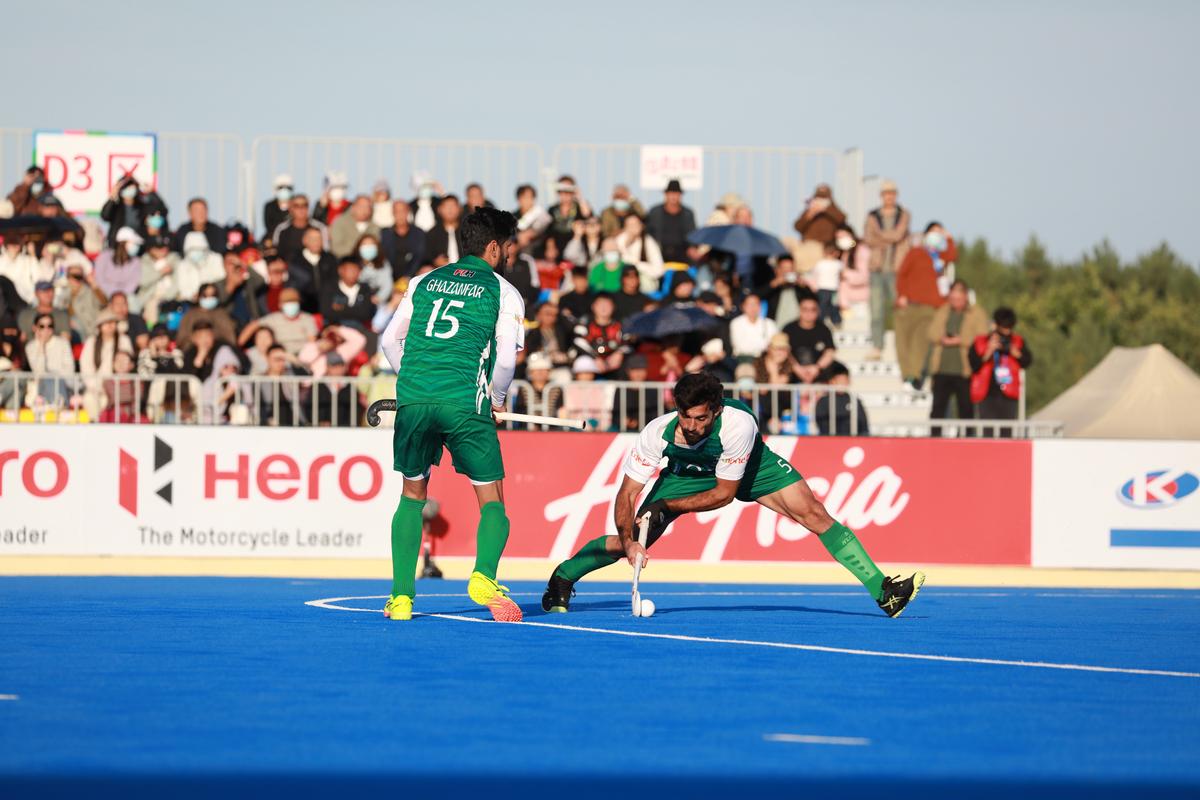
“This is a very important tournament not just for us individually for experience but doing well here is important for the revival of Pakistan hockey. Specially given the situation we have been in recently and the conditions and circumstances in which our players have performed. Our team here is a combination of junior and senior players but most are very young,” Butt said.
He agreed with Zaman that talent was the least of Pakistan hockey’s problems. “There is no lack of talent or skills. These are the same guys from the Junior Asia Cup or the last ACT or the Asian Games. What they don’t have is international exposure. We need to play more games with good teams to get better. The Indian federation is strong and manages to get them, ours is very weak in comparison and there have also been a lot of problems for a long time. Things are now slowly getting better, the government has started giving some attention to hockey and the private sector is also slowly getting interested again,” he was optimistic.
Chop and change
Asked about the frequent changes in the coaching staff, Butt was blunt in his assessment. Zaman’s appointment at the last minute is only a symptom of a deeper malaise, something Indian hockey suffered from for a long time before setting its house in order. Siegfried Aikman came on board in 2021 but quit soon after months of unpaid dues, Oltmans sought a proper, long-term contract and PHF brought in the likes of Shahnaz Shaikh and Rehan Butt in between, only to be removed unceremoniously.
“We tried getting foreign coaches, did all sorts of experiments. It is very difficult for the boys to get a grip on things, they are not clear on what to do or not on the field all the time. Changing coaches every tournament is not a good thing, they should be hired for the long-term so that there is some stability and continuity.
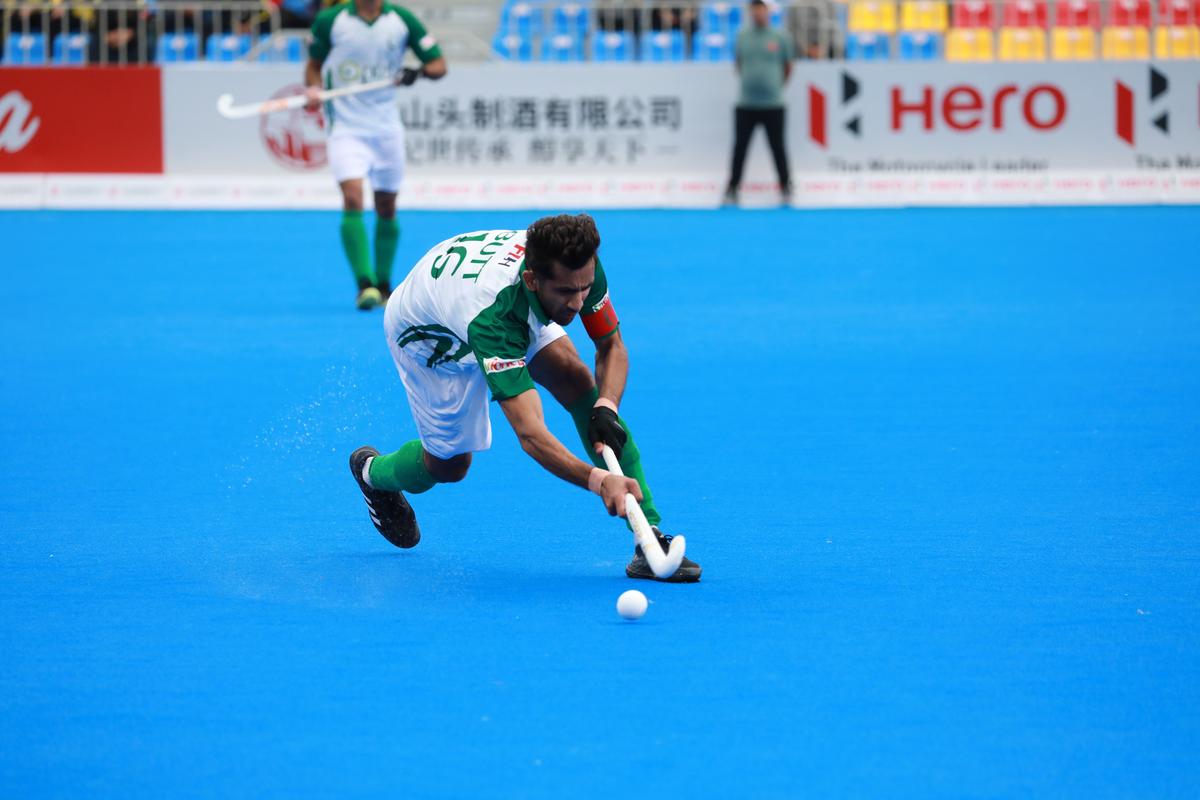
“(Oltmans) was with us for two tournaments, the performances got better but then financial issues forced him to cancel. It takes time for our boys to understand a foreign coach and his style. Results will come but it will take time. Hopefully we will continue with these players only to reach our target,” he shrugged.
Zaman agreed. “I have had some discussions with the PHF but the main long-term contract will be discussed after returning. What I can assure is that it won’t be a short-term thing. I will work on making a centralised pool of players, including juniors also if need be, so that we have at least 30-35 players to rotate,” he said.
Finishing the ACT with a bronze, Butt and his boys have ticked off the first of many boxes. To put the medal in context, this is Pakistan’s first-ever medal in any competition, outside the Azlan Shah Cup, since being joint winners with India at the 2018 ACT. After years of false dawns, Zaman would be hoping the hopes of revival are real this time around.
(The interactions were facilitated by Sony Sports Network, the official broadcaster for the Hero Asian Champions Trophy).
Published – September 17, 2024 10:07 pm IST
